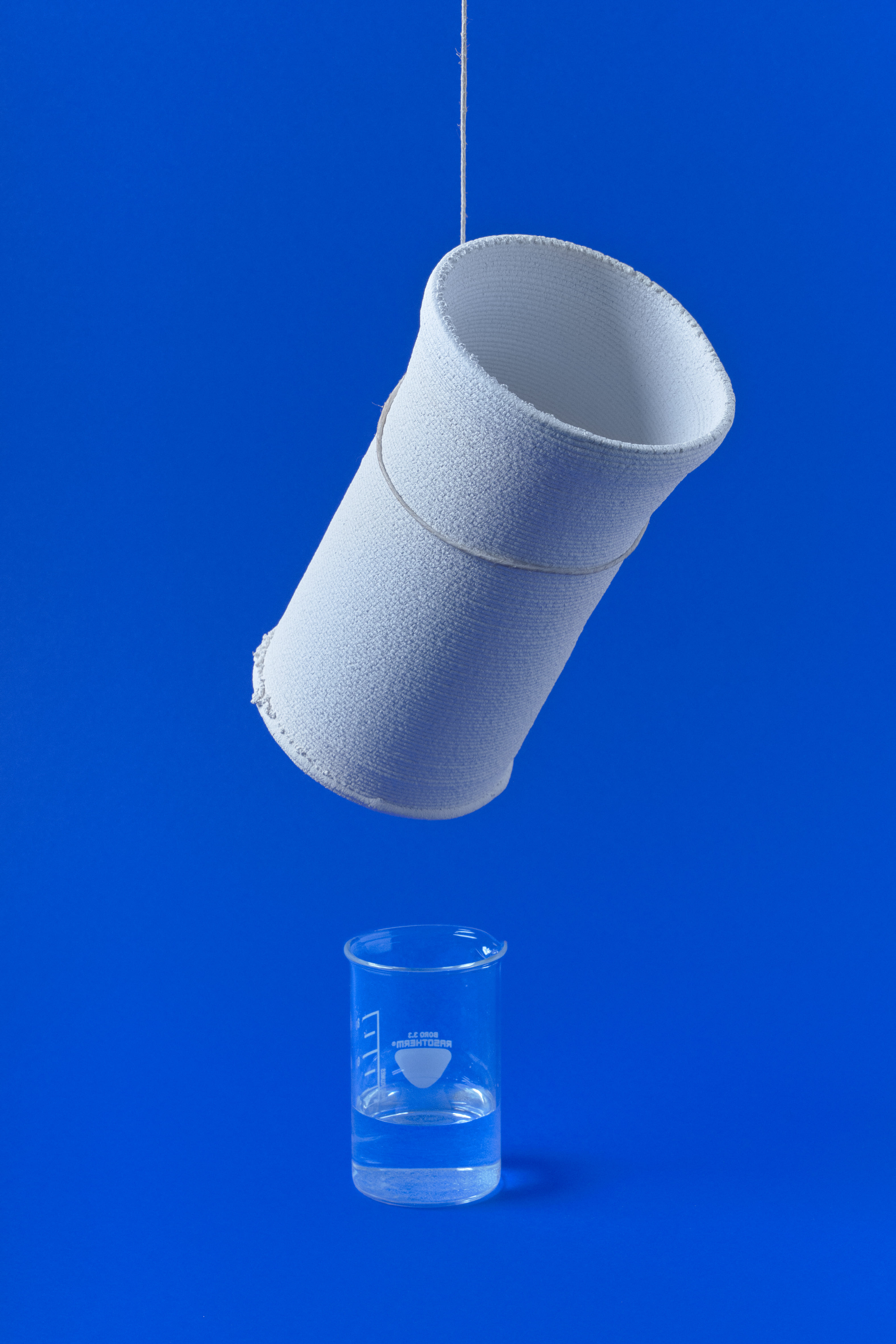\

\
research: bio-vernacular, water, natural water filtration
experimentation: xylem and ceramic filtration, 3D clay printing, Archimedes screw, gyroid structure
product design: a 3D clay printed ceramic water filter for remote locations
exhibition: BIO27
by: Žan Girandon, Pia Groleger, Ema Kapelj, Zala Križ, Luka Pleskovič
photos: Bor Cvetko and Pjorkkala
2022
Dodola is an installation of intricately shaped filtration modules that purify water, removing contaminants as small as bacteria and leaving behind only the desired constituents, such as minerals. It is made of clay mixed with organic material and fired in a way that increases its porosity manyfold. Stemming from material experimentation, the process of form exploration began with the help of generative design and 3D clay printing technology. The goal was to generate forms that would act as scaffolding for the water, improve water permeability, enable water movement, and direct its flow upwards. To take advantage of hydraulic pressure under the surface, the underwater objects were designed to enable water absorption through the entire surface of the structure. To increase water permeability, the filter was designed by incorporating the gyroid minimal surface, which can also be observed in beetle shells and the paths of a butterfly’s wings mid-flight. Furthermore, using this structure makes the objects statically reinforced. The flow of water is used to turn the filters, which then transfers the water from a lower to a higher plane through an Archimedes screw. By using the flow of water to power the rotation of the filters, the device can be installed even in remote areas where there are no power connections.



This project is focused on water treatment in places where there isn’t an adequate or available public water supply. Around 20 % of Slovenes are not connected to the public supply, and even those who are often prefer to use water which they collect from other, natural, sources.
There is a common belief that spring water in Slovenia is clean, but since a large part of Slovenia lies on karst grounds, it is difficult to predict the flow of groundwater and the accompanying pollution.
The location chosen as a pilot area for the project lies in the Triglav National Park, where, contrary to public belief, spring waters are quite contaminated.









